First Steps When You Suspect Illnesses or Other Problems
When you first suspect that one or more of your fish is sick, you need to act quickly, but you also need to understand what the problem is. The following are some initial steps to take before attempting more drastic treatments.
STEP ONE
As soon as you notice a problem with your fish, try raising your tank temperature to 90 – 92 degrees and leaving the light off. The increased temperature will raise your fish’s metabolism, so if they were just not eating, this might get them eating again. Higher temperatures can also get rid of internal parasites without the use of medication. However, if you believe the problem could be a bacterial infection, Do not raise the tank temperature.
Keep in mind that adult discus sometimes stop eating for a short time. It is pretty uncommon, but it can happen. If this happens, don’t get too upset; just ride it out and they should return to their normal feeding routine in a couple days.
When you raise the temperature of your tank, monitor it carefully. A heater can heat up the water very quickly, so you want to make sure the water doesn’t get too hot. Once the temperature has been raised, keep an eye on your fish and see if there are any signs of improvements or if any other symptoms appear.
If it appears that only one or two fish in your tank are sick, you should probably move them to another tank. This will keep your other fish from getting sick and make it easier and cheaper to give medication to your fish.
STEP TWO
Try to determine the cause of your problem. Did you add fish to your tank without quarantining them first? pH shock is a common problem, could you have accidentally created one? Even though you think you changed the water and did things correctly, this is a common final diagnosis for unknown stress on discus. If you are in a hurry, you may not adjust your pH properly during your water changes. This is especially true if you don’t have your replacement water already pre-treated and ready to go. Sometimes your problem is just due to a simple mistake.
STEP THREE
Check your filter elements to make sure they are not old, dirty, or contaminated. When using carbon, make sure you don’t leave it in too long because when it is overused it can release contaminants back into your water. Make sure the entire filtration system is working properly, and also test the water. If there are high ammonia levels the culprit is probably your carbon filter. If your filtration system looks good, try a few water changes.
Biological Hang-On Filter
STEP FOUR
It is possible that your water temperature changed quickly, stressing your fish. If you performed a water change and accidentally gave them water that was colder or warmer than what was in the tank, this could be the cause of your problem. It’s possible that your heater heated up the water too quickly. Make sure your water temperature is in the correct range and watch your fish.
STEP FIVE
If you have high ammonia levels it could be a filtration problem or a byproduct of overfeeding your fish. It may also be because you have too many discus for the size of your tank. It is best to have 3 – 4 gallons of water for each small fish in your tank and 8 – 10 gallons for each large fish.
STEP SIX
Once you’ve tried all the above ideas, you will have to try to determine what the specific ailment is and what medication you want to try. See our Common Symptoms and Their Treatments article for a list of diseases and their recommended treatments.
Before you start treatment with medications, you will have to remove any carbon filtration you have in your tank because it can remove the medications from the water. Treat your fish with the medication for 2 – 3 days. If there is no improvement in your fish, use a carbon filter for about 24 hours to remove the medication and then do a partial water change before trying the next medication (make sure you remove the carbon again!).
Keep in mind that medications will use up any dissolved oxygen that is in your water so you will need to generate extra aeration when you are using medications.
Discus Medications
QUESTIONS
- What should you do if you suspect that your discus are sick?
- How can sudden temperature changes make discus sick?
- What steps can you take to keep your discus healthy?

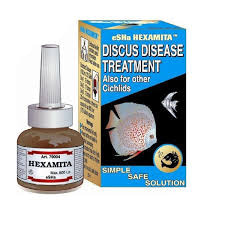

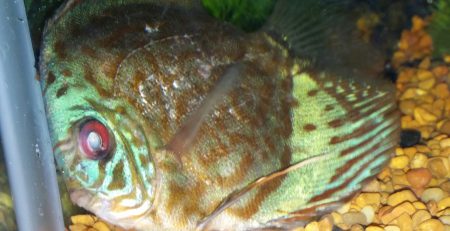
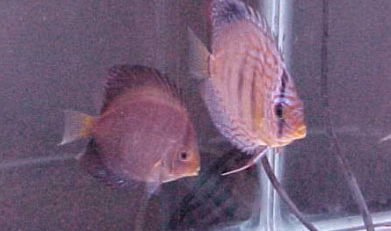

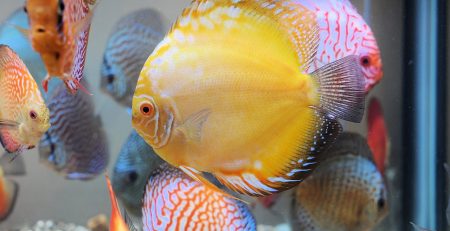
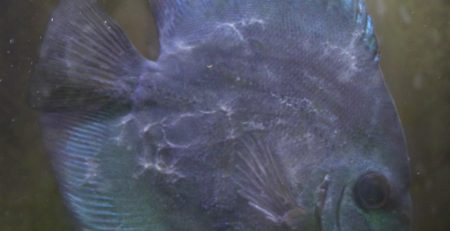
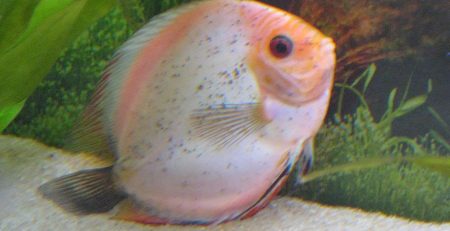


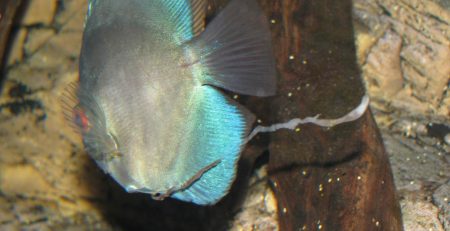

Leave a Reply
You must be logged in to post a comment.